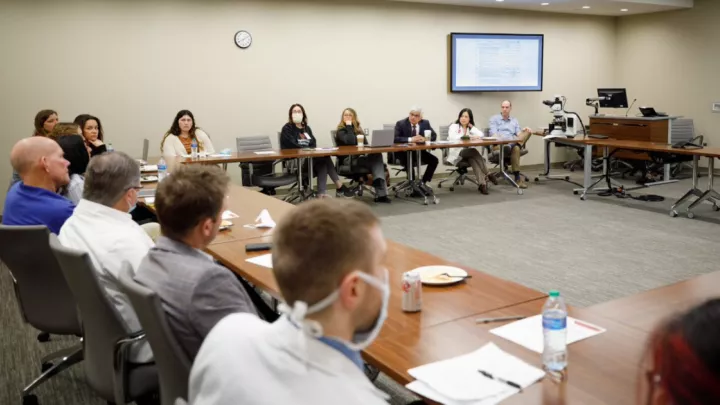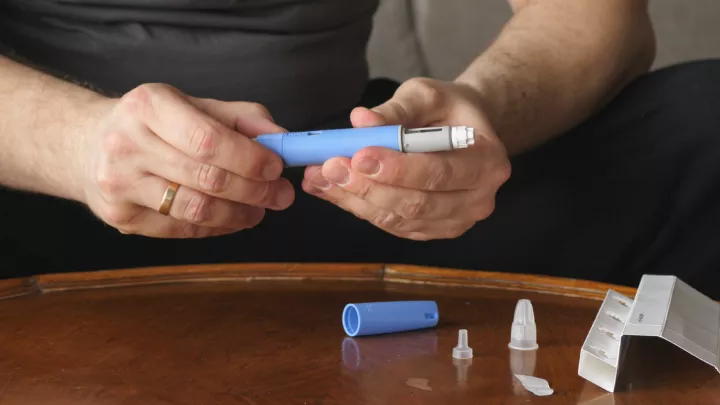Pancreatic cancer study tests immunotherapy drug

Pancreatic cancer is a tough disease to beat, with only 11.5% of patients surviving more than five years. But Nebraska Medicine researchers are working hard to find new ways to boost survival.
A clinical trial is currently underway to study a novel immunotherapy drug called rintatolimod. Researchers are studying whether rintatolimod controls pancreatic cancer that has not spread to other organs but cannot be removed.
“We are looking at rintatolimod in patients who have already had chemotherapy and who may have had radiation therapy – patients who have probably developed cumulative side effects from treatment,” says gastrointestinal oncologist Mridula Krishnan, MBBS. “They reach a point where, even if their disease is well controlled, it’s hard to give them more chemo. A drug like this, with a different side effect profile can be more tolerable for these patients.”
Rintatolimod helps the immune system fight against cancer through the toll-like receptor 3, or TLR3, which typically helps our bodies recognize viral infections. By blocking TLR3, rintatolimod may improve the immune system’s ability to identify and fight pancreatic cancer.
Researchers are studying whether rintatolimod helps patients live longer without cancer growth, known as progression-free survival, or PFS. Tony Hollingsworth, PhD, a Fred & Pamela Buffett Cancer Center scientist, performed early mouse model studies to demonstrate the activity of rintatolimod in pancreatic cancer. His lab is performing the current trial, which is seeking patients who:
- Have been diagnosed with pancreatic cancer that cannot be removed and is locally advanced, meaning it has grown outside of the pancreas but has not yet spread to other parts of the body.
- Have completed at least four months of FOLFIRINOX, a combination of cancer drugs, without disease progression.
- Men or women who aren't pregnant or lactating.
- Have a projected life expectancy of more than three months and have adequate organ function.
- Weigh at least 88.2 pounds.
ClinicalTrials.gov Identifier: NCT05494697







